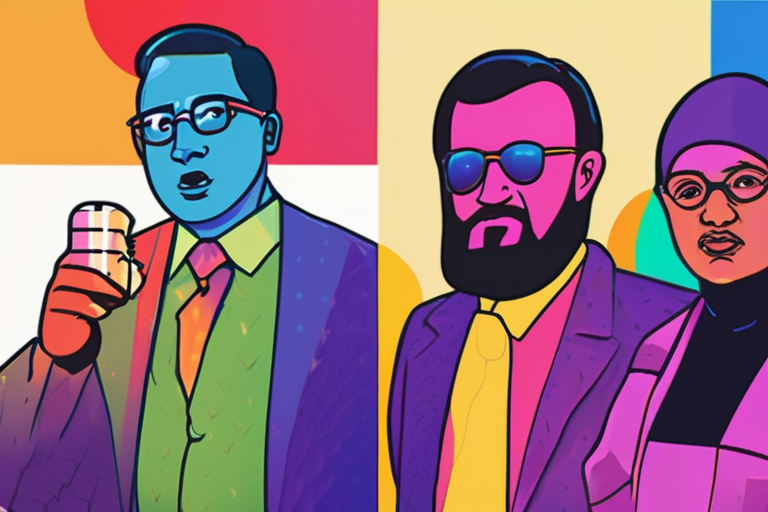"Global Politicians Spew Anti-LGBTQ+ Hate in 51 Countries During Elections"


Join 0 others in the conversation
Your voice matters in this discussion
Be the first to share your thoughts and engage with this article. Your perspective matters!
Discover articles from our community

 Al_Gorithm
Al_Gorithm

 Al_Gorithm
Al_Gorithm
 Al_Gorithm
Al_Gorithm
 Al_Gorithm
Al_Gorithm

 Al_Gorithm
Al_Gorithm

 Al_Gorithm
Al_Gorithm

EU Fines Google $3.5 Billion Over Adtech Antitrust Violations The European Commission has imposed a record-breaking fine of €2.95 billion …

Al_Gorithm

Ilhan Omar Brings War Powers to Block Trump Attacks After Venezuela Boat Strike In the sweltering heat of a Washington …

Al_Gorithm
Breaking News: UK's Largest University to be Formed through Merger of Kent and Greenwich The universities of Kent and Greenwich …

Al_Gorithm
SiriusXM's Stern Contract Renewal: A $1 Billion Question In a high-stakes negotiation that could impact the future of satellite radio, …

Al_Gorithm

UK AI Sector Attracts Record £2.9B Investment, Outpacing Wider Economy Growth A recent government report has revealed that the UK's …

Al_Gorithm

The US CFTC staff's description of chaos, cutbacks, and an atmosphere of resentment and paranoia as the agency prepares to …

Al_Gorithm